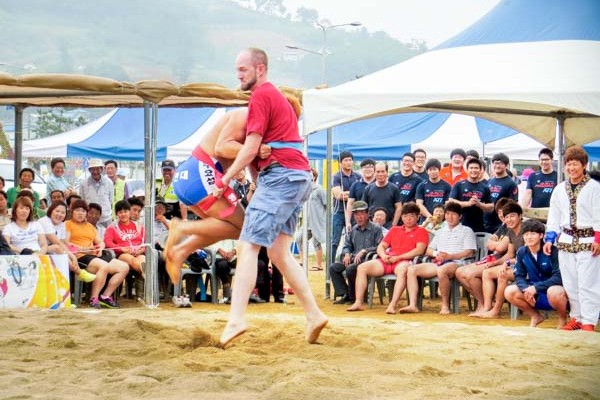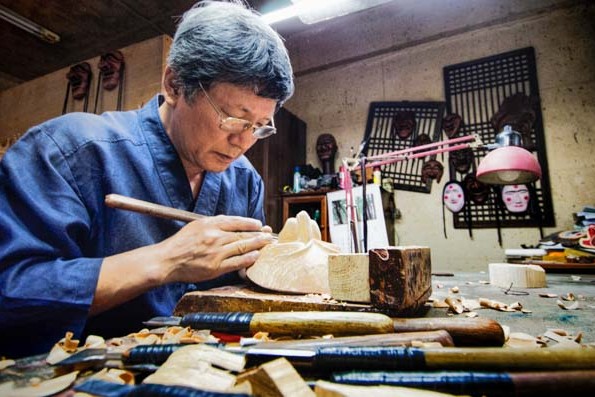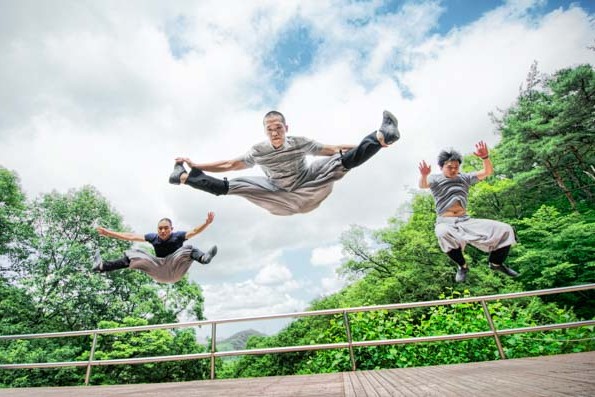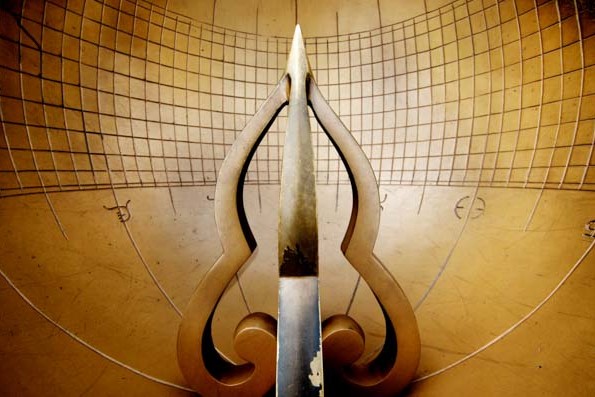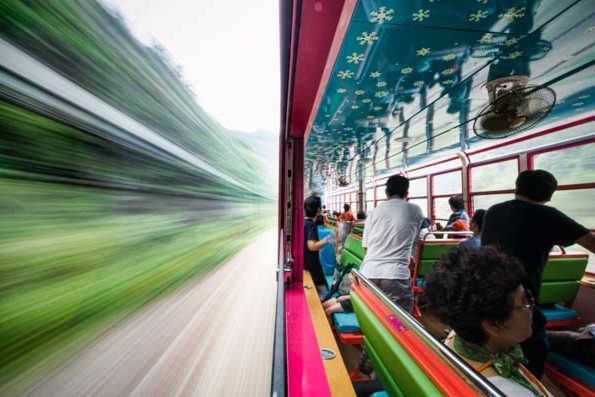As the octopus’ severed head wiggled around on the plate, I knew what I had to do.
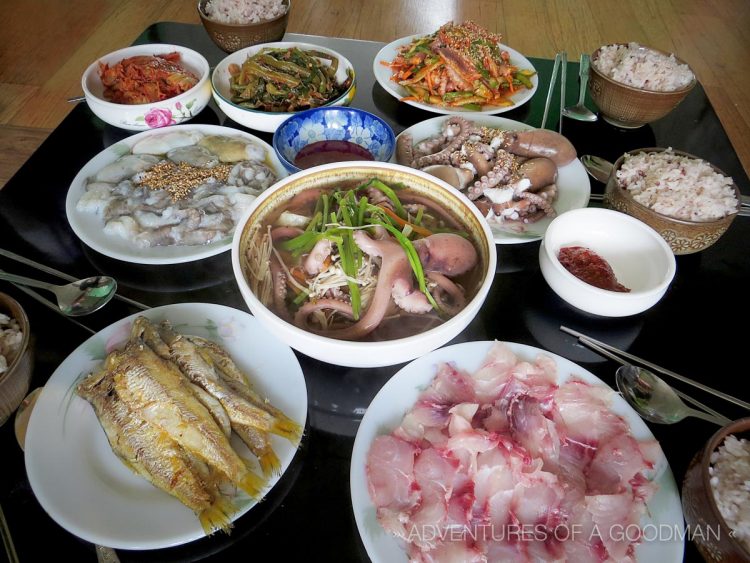
I picked up the octopus head, dropped it into my mouth and chewed for what seemed like hours.
With every bite, previously-undiscovered parts of its innards found their way onto my tongue.
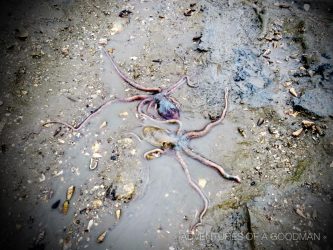
Ink was dripping down my beard and, no matter how hard I tried, I just couldn’t swallow.
It was pretty much the most disgusting thing I’ve ever eaten and if there were no TV cameras filming me, I probably would have spit it out.
But, in the end, I got it down and can add “eating a living octopus’ head” to the list of things I’ve tried and never need to do again!
So how did I get myself into this situation? Here’s the story…
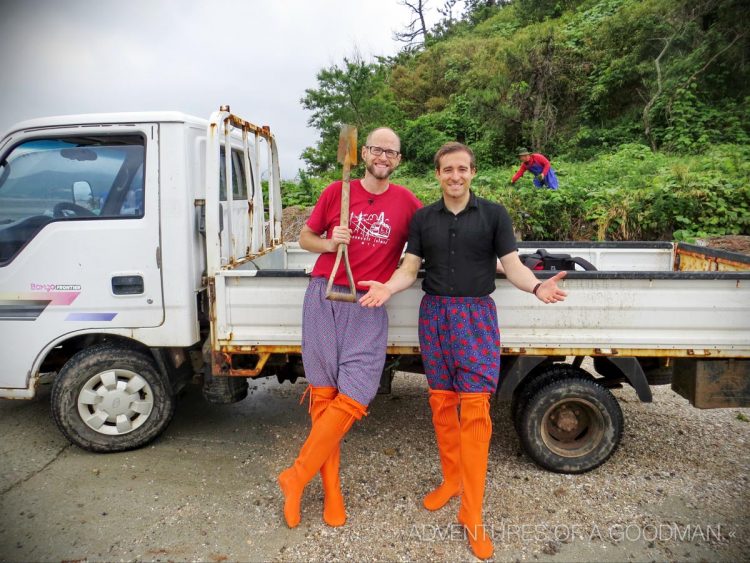
Nakji are small octopuses that lives in mudflats by the ocean
Every morning, after the tide recedes, local Korean fishermen grab their shovels and head out into the mudflats.
Like trained detectives, these expert fishermen decide where to dig by looking for small holes or trails in the mud.
Upon finding one of these clues, they jam their shovel into the ground and begin digging as quickly as possible.

The Chase is On for Nakji
Like any animal with survival instinct, the octopus senses danger and begins to tunnel its way through the mud and away from the shovel.
It’s the nakji fisherman’s job to anticipate this movement and continue digging in the proper direction. Most times, the fisherman either catches the octopus or loses it within a minute or so.
On occasion, the hunt lasts longer and that’s when things really get exciting: at least for me. This fisherman spent at least 5 minutes digging and left a trail of destruction in his wake.
After he successfully caught it, my costar, Jesse, nicknamed him the Nakji Terminator. The fisherman LOVED his new name.
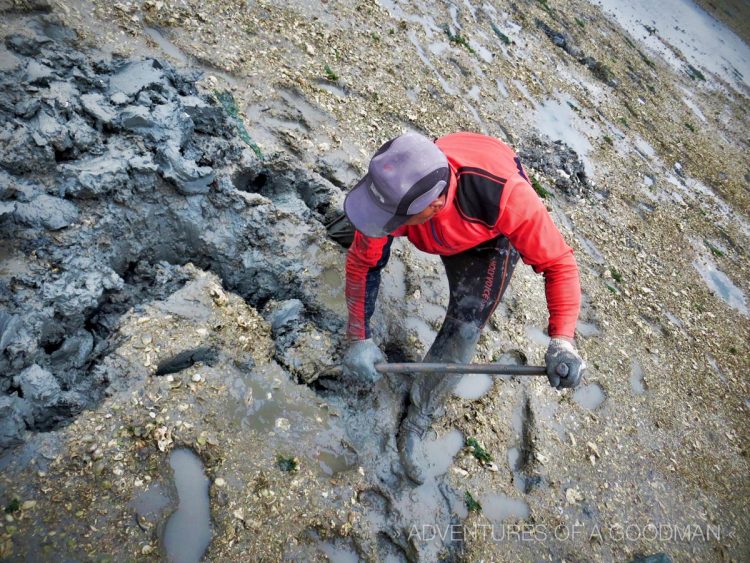
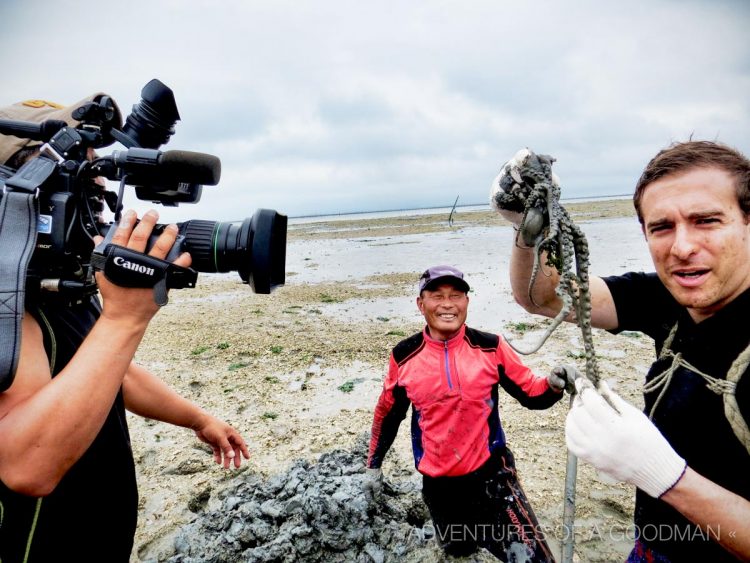
I caught an octopus with my bare hands … (and a shovel)
My first attempt at catching nakji was a complete failure and the fisherman stopped me after a few seconds. My digging technique was wrong and I immediately lost the octopus.
Later in the morning, I had another chance.
With the guidance of two expert nakji fishermen, I shoveled heavy loads of mud out of the ground in a zig-zag pattern.
My eight-legged pray was on the move and I was digging at speeds I didn’t know were possible.
Finally, after what seemed like an eternity, I tossed a shovel-full of mud aside and saw a nakji wiggling in the bottom of my hole.
I reached in, grabbed the octopus with my hand, thrust it into the air in victory and let-loose a primal scream of “YEAAAAAAAAH!”
Out of everything we’ve filmed so far, this scene is the one I’m most excited to see.
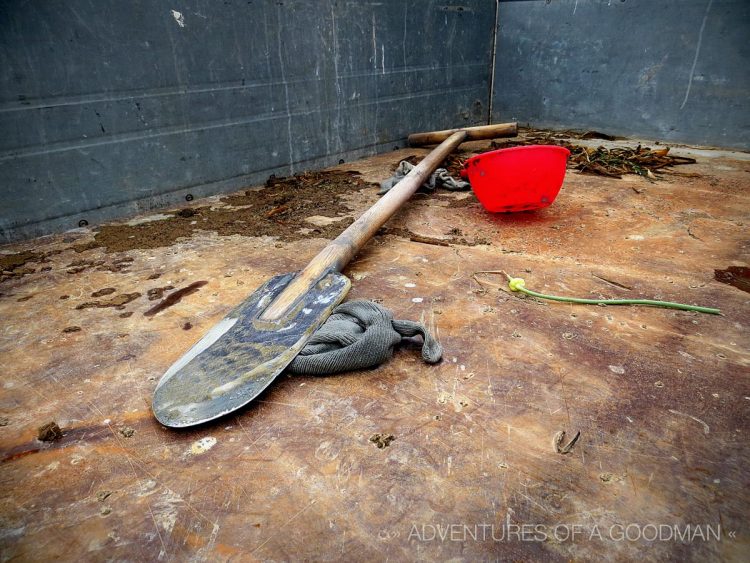
We Barely Made it Back before the Tide Came In
After catching my nakji, the fishermen told us it was time to head back to the shore. The tide was quickly approaching and we had wandered out pretty far.
While walking, the fisherman began to explain something to me. Good thing I speak fluent hand gesture and facial expression; because my Korean is non-existent.
As I understood it, he said the water would reach my waist if we didn’t hurry up and get to the shore.
I also assumed he meant his waist. Being a solid foot taller than the fisherman, that would imply water up to my knees.
Turns out I was wrong on both counts, as I soon found myself trudging through hip-deep water before reaching the shore.
Fortunately, I had the foresight to take my camera out of my pocket before hitting the really deep part; both so it didn’t get ruined and so that I could take this comical video of the scene…
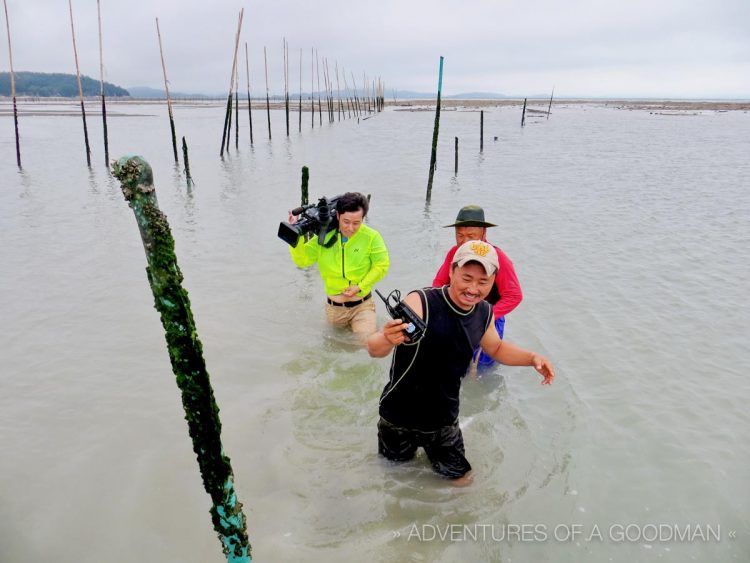
A Nakji BBQ on Dry Land
Having safely made it back to land, the fishermen prepared a lunch of nakji and ramen noodles for us.
They got a fire started a fire with newspaper, driftwood and plastic bottles and placed a pot from home on top of it. I guess this part was planned in advance, as I can’t imagine they have a BBQ every day after work.
. . .
Before tossing a live nakji into the boiling pot, they got me to take a bite of its still-moving tentacle. Surprisingly, it was pretty tasty; though, the suckers got stuck to my lip and the inside of my mouth.
Later, after cooking the meal, the fisherman pulled the boiled nakji head out of the soup and gave it to me to eat. The flavor was ok; but man-oh-man did it scald my mouth!
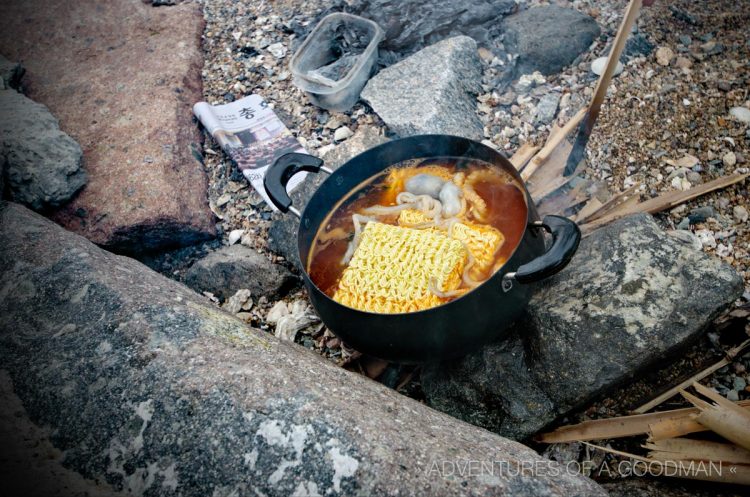
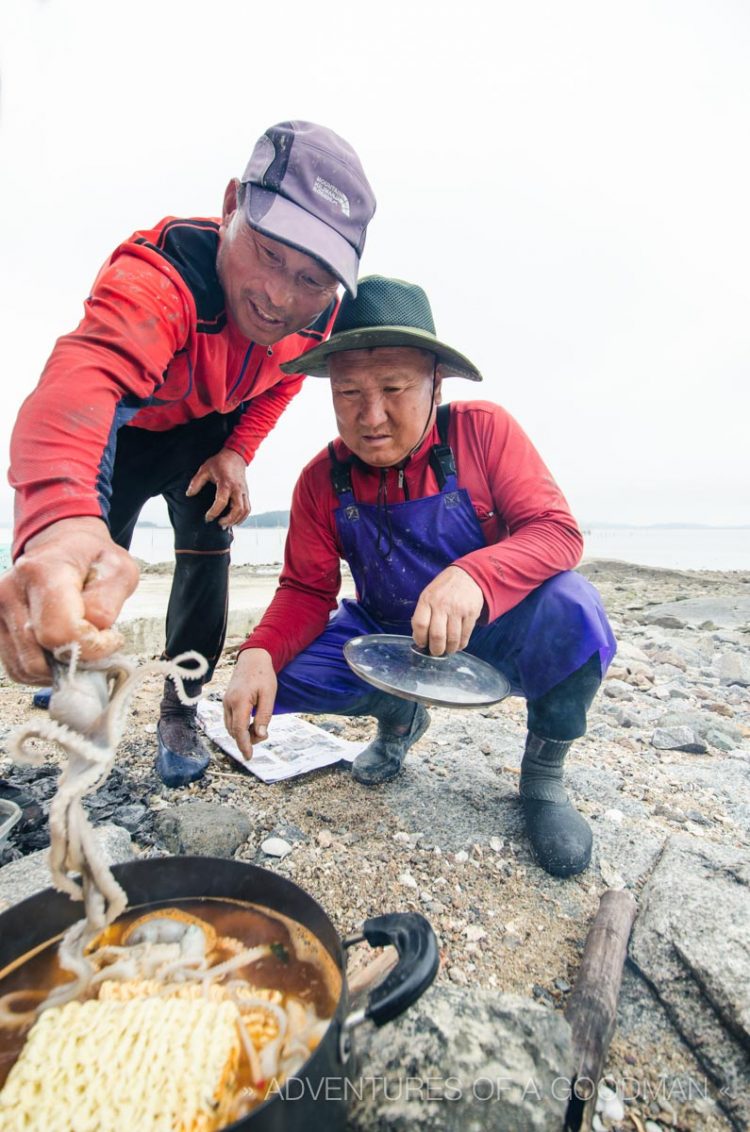
Our Nakji Fisherman Host
For two days, I had the honor of working alongside Jaesun Son: an incredibly kind local fisherman whom National Geographic Channel hired to be our guide.
When we first met him along the shores of the mudflats, Jesse and I were being eaten alive by little bugs. He immediately went into the woods, found a local plant called ssook, ground it up, squeezed the juice out and spread it all over our faces, arms and legs.
We probably could have done the spreading ourselves, but it made for better television to have him do it.
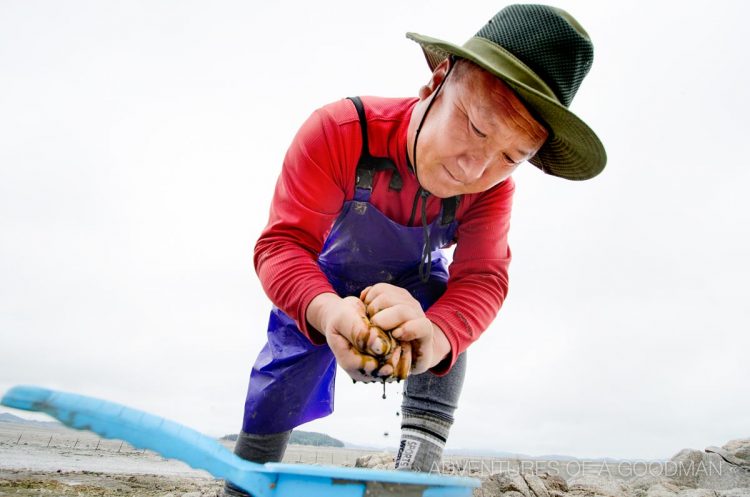
Back to the Fisherman’s House for a Nakji Feast
After our BBQ, we all returned to Mr. Son’s home to eat a traditional South Korean meal with his wife and mother. The featured ingredient was, you guessed it, nakji.
. . .
Well, that about brings us back to where we started; with me desperately trying to swallow a still-moving octopus head.
After successfully getting it down, we spent a bit more time chatting with Mr. Son and his family before saying a cheery goodbye and heading out to our next adventure.
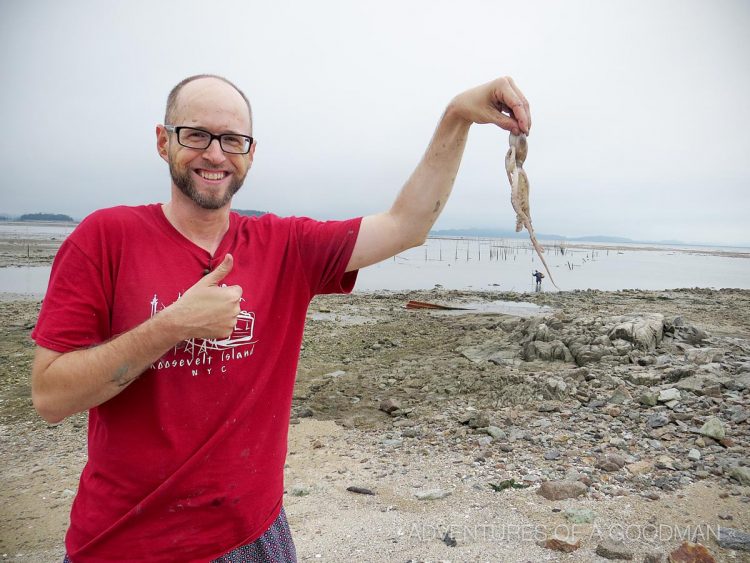
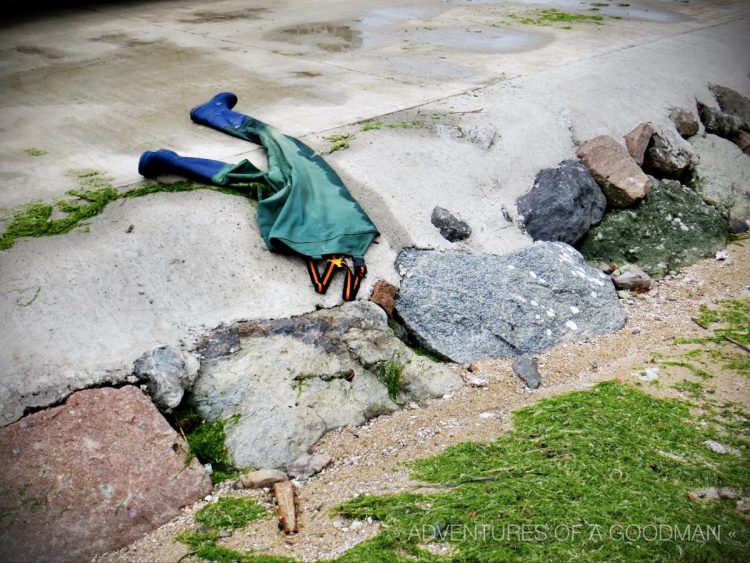
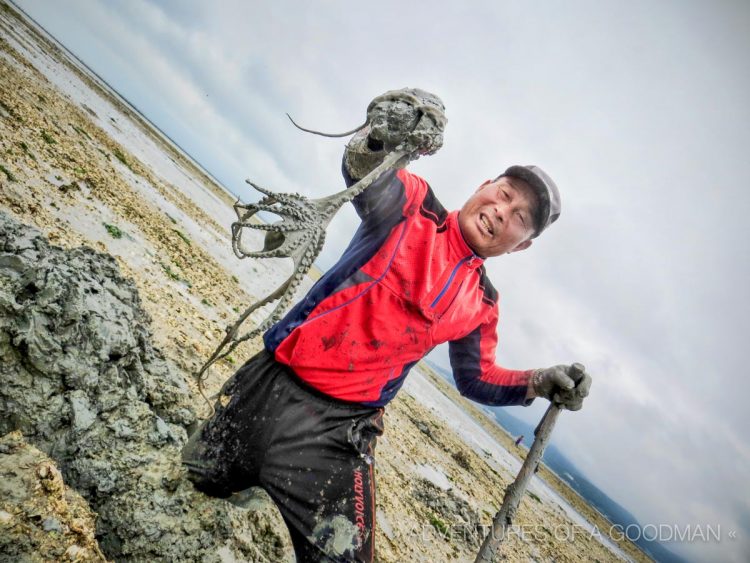
GET LOST IN KOREA
In 2013, I was hired by National Geographic to film a TV show in South Korea … following my adventures as a travel blogger and photographic storyteller.
The single-episode show offered a mix of humor, tradition, adventure and stunning imagery; as I teamed up with Jesse Day: a Canadian entertainer who lives in Seoul and raps in Korean.
Here are the highlights from filming Get Lost in Korea …
EXPLORE SOMEWHERE NEW
BUY A PRINT
All photos on this site are available as limited edition fine art photographic prints. Please get in touch for sizes and rates.



